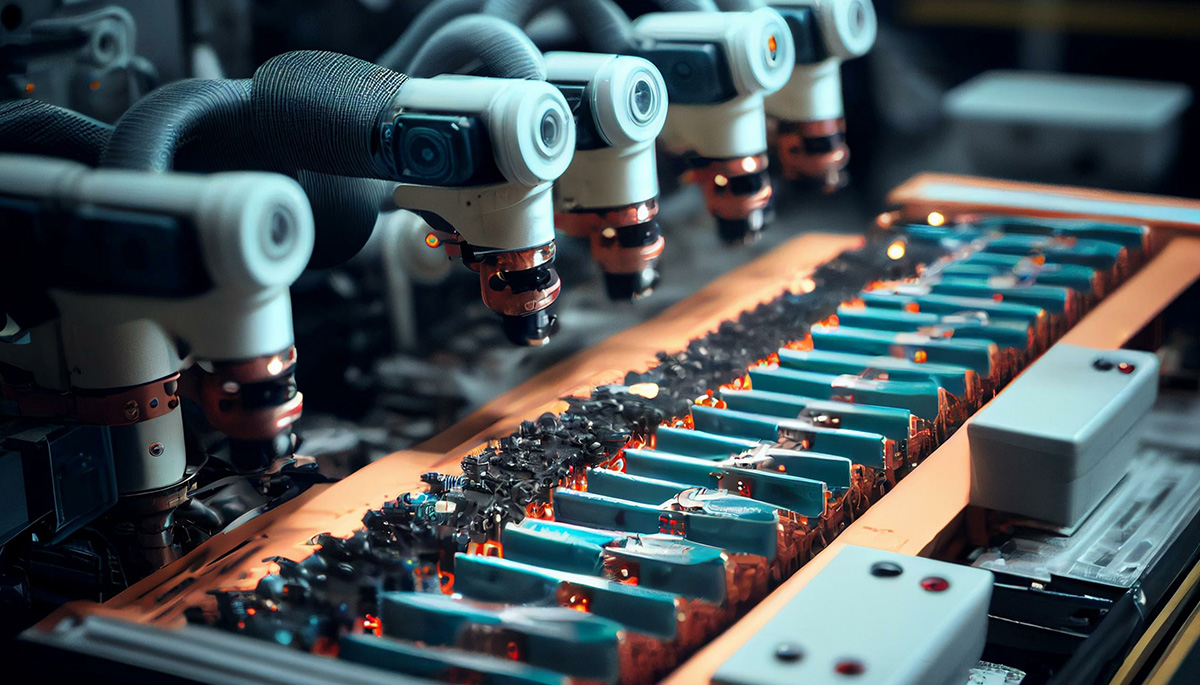The global demand for battery-grade materials has been increasing at a precipitous rate over the last decade, primarily due to the recent rise in the popularity of electric vehicles. As Europe, and countries such as the USA, begin the transition to zero-emission vehicles by 2035, this demand is projected to increase exponentially. Consequently, the increase in demand for raw materials has led to astronomical increases in prices of Lithium and other critical battery metals such as Cobalt, Nickel and Copper, which in turn, has been exacerbated by dwindling natural resources. To meet this increased demand, select pockets of the industry have been strategically investing in developing new or more efficient extraction technologies, identifying recycling opportunities and investigating alternative materials to close the widening gap.
MET63, in particular, has been actively developing innovative processing methods and novel flow sheets to meet the rising demand. A renewed focus has been placed on waste recycling (spent EV batteries and other electronic waste products). The recycling strategy’s premise depends on using carefully selected hydrometallurgical methods to recover critical metals from alternative, ‘waste’ resources to battery-grade quality. This closed-loop strategy reduces the reliance on already limited deposits while boasting significantly lower energy requirements due to the sustainable, circular-economy approach.
As a company that prides itself on its innovative culture and technical expertise in Hydrometallurgy and Engineering, MET63 has positioned itself as a front-runner in the battery-materials space. Our portfolio already boasts a successful track record of delivering world-class battery-materials production plants to market. MET63’s core objective is to provide expert technical support to our clients to enable them to make informed, strategic decisions to become truly competitive in this growing market.
MET63 employs experts in Hydrometallurgy and Engineering to identify lower energy, more environmentally conscious alternatives to conventional high energy, extensive carbon-footprint processes, such as Pyrometallurgy. Even wastewater is recognised as a potential resource, as a treatment to appropriate water qualities allows for its reuse in process operations, further decreasing the overall environmental impact of selected projects. Due to the current, growing energy crisis the world is experiencing and the astronomical increase in demand for battery-grade metals, alternative processes such as these that reduce energy requirements and rely on the utilisation of ‘waste products’ as feed materials, are of great interest. The great minds at MET63 are constantly forging innovative solutions based on cutting-edge research to develop further or improve current industry practices to bring about a greener tomorrow.
Met63 scientists also collaborate with experts in the field of bacterial leaching or Bioleaching. This approach often uses mixed, microbial populations to extract raw battery metals such as Nickel, Cobalt, and Copper from sulfidic ores or concentrates. These microbes are iron-sulfur oxidising, acidophilic (acid-loving) chemoautotrophs which obtain their energy from chemical reactions and use CO2 as their carbon source. These incredibly robust bacteria are uniquely suited to the task as they 1) catalyse redox reactions to produce sulfuric acid from the sulphide material and 2) recycle the chemical oxidant, ferric iron, which is critical to the process. Tank leaching is a continuous process that requires several large, agitated tanks operated in series. The slurry is maintained at a constant temperature between 40 to 70°C, depending on the target mineral. Although bioleaching creates waste products in a similar fashion to conventional leaching operations, these microbes can produce and recycle critical chemicals (sulfuric acid and ferric ion), ultimately reducing the process’s chemical requirements. In addition, their assimilation of CO2 from the environment as part of their metabolism typically results in a smaller carbon footprint than other move conventional processes, such as Pyrometallurgy.
MET63 uses the Fluidised Leach Oxidation Reactors (FleXor) technology as part of our extensive tailings treatment technology development program, enabling our clients to develop previously un-economic mineral deposits or resources. This is a true counter-current leaching and washing system in low-cost lined vats with internal leak protection to minimise the loss of valuable resources. This process requires lower capital investment than conventional processing options and has been proven to yield higher metal recoveries than heap leach technologies. FleXor has a large operating window that can process fine and coarse raw materials of up to 2mm. True to MET63’s ethos, these plants can be rapidly constructed, unlike conventional leaching systems. FleXor provides opportunities for mines to acquire additional low-grade or tailings projects and has the potential to rescue marginal operations by bypassing the plant bottleneck. FleXor can operate from small to mega projects, and bacterial-based FleXor bioleaching operations are currently in the planning stages. This revolutionary process design applies to base-, industrial- and precious metal leaching and enables clients to expand the capacity of their project using a modular approach as it evolves.
Furthermore, MET63 is looking towards Resin in Pulp (RIP) solutions to make the recovery of soluble metals from tailings and waste streams more economical. Most mining waste residues, especially from leaching mining practices, contain dissolved metals such as Copper, Nickel, and Cobalt, which can negatively impact the environment unless treated or controlled. When these residues are transported to tailing treatment facilities, there is an opportunity for environmental contamination. The Resin in Pulp solution entails direct recovery of metals from mine waste slurries by adsorption of the target metal onto resin particles from where these dissolved metals can be recovered for reuse in the battery industry.
Through the combined knowledge of Engineering, Scientific and Hydrometallurgy, our talented Team at MET63 can recommend a unique solution perfectly tailored to your battery material project while keeping the environmental impact to a minimum. We aim to transform “un-economical” waste and tailings resources into profitable ventures. The solutions mentioned above and our modular design strategy make MET63 the ideal company to partner with to thrive in the highly competitive battery minerals industry.
